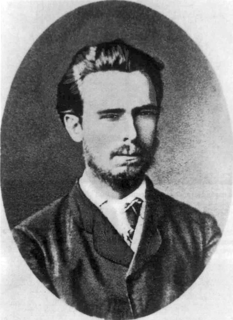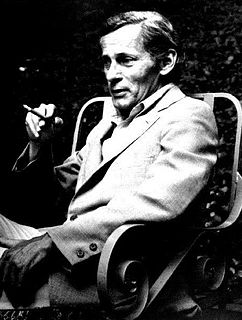A Quote by Karl Kraus
The triumph of morality: A thief who has broken into a bedroom claims his sense of shame had been outraged, and by threatening theoccupants with exposure of an immoral act he blackmails them into not bringing charges for burglary.
Related Quotes
Man was destined for society. His morality therefore was to be formed to this object. He was endowed with a sense of right and wrong merely relative to this. This sense is as much a part of his nature as the sense of hearing, seeing, feeling; it is the true foundation of morality... The moral sense, or conscience, is as much a part of man as his leg or arm. It is given to all human beings in a stronger or weaker degree, as force of members is given them in a greater or less degree. It may be strengthened by exercise, as may any particular limb of the body.
He was doing missionary work. But from the outset he had little success in convincing his charges of their responsibility for a sin committed at the beginning of creation, one which, as they understood it, they were ready and capable (indeed, they carried charms to assure it) of duplicating themselves. He did no better convincing them that a man had died on a tree to save them all: an act which one old Indian, if Gwyon had translated correctly, regarded as "rank presumption".
There were times when it appeared to Dorian Gray that the whole of history was merely the record of his own life, not as he had lived it in act and circumstand, but as his imagination had created it for him, as it had been in his brain and in his passions. He felt that he had known them all, those strange terrible figures that had passed across the stage of the world and made sin so marvellous, and evil so full of subtlety. It seemed to him that in some mysterious way their lives had been his own.
If God kills, lies, cheats, discriminates, and otherwise behaves in a manner that puts the Mafia to shame, that's okay, he's God. He can do whatever he wants. Anyone who adheres to this philosophy has had his sense of morality, decency, justice and humaneness warped beyond recognition by the very book that is supposedly preaching the opposite.
As a teenager in Brooklyn Quentin had often imagined himself engaged in martial heroics, but after this he knew, as a cold immutable fact, that he would do anything necessary, sacrificing whatever or whomever he had to, to avoid risking exposure to physical violence. Shame never came into it. He embraced his new identity as a coward. He would run in the other direction. He would lie down and cry and put his arms over his head or play dead. It didn't matter what he had to do, he would do it and be glad.
A free thinker used to be a man who had been educated on ideas of religion, law, morality, and had arrived at free thought by virtue of his own struggle and toil; but now a new type of born freethinker has been appearing, who’ve never even heard that there have been laws of morality and religion, and that there are authorities, but who simply grow up with negative ideas about everything, that is savages.



































